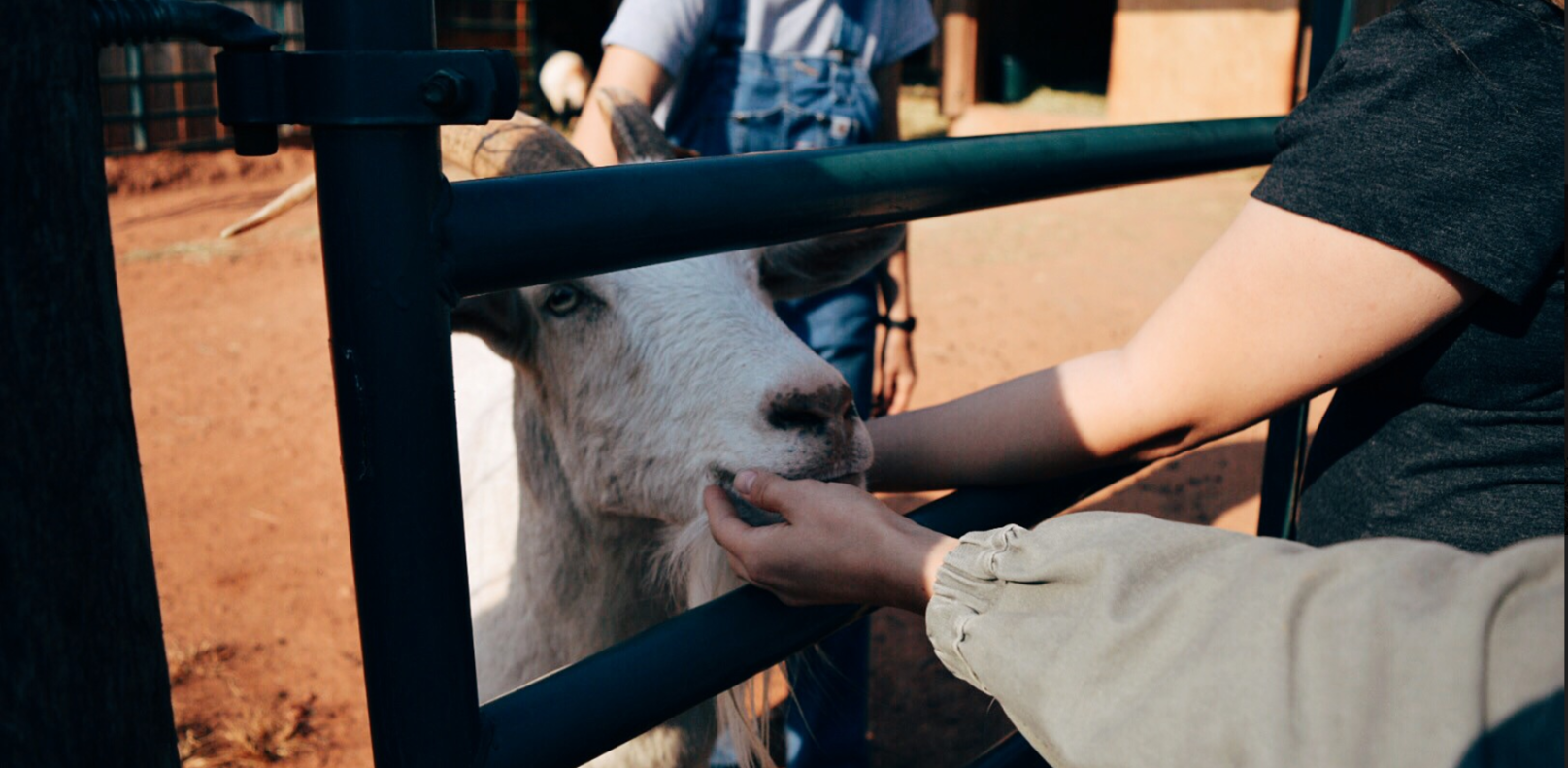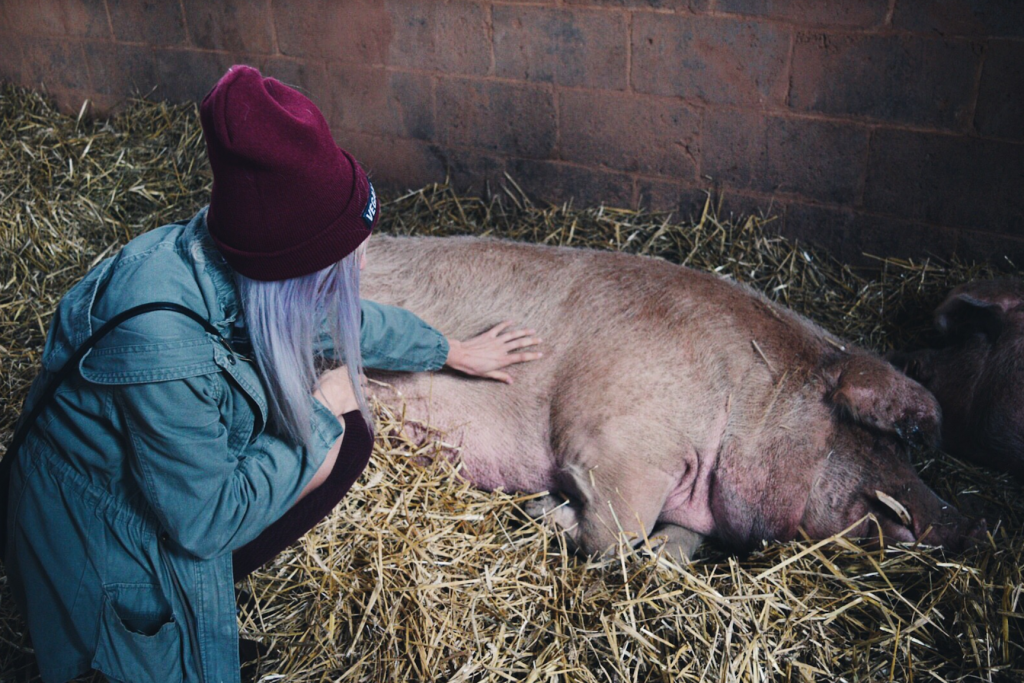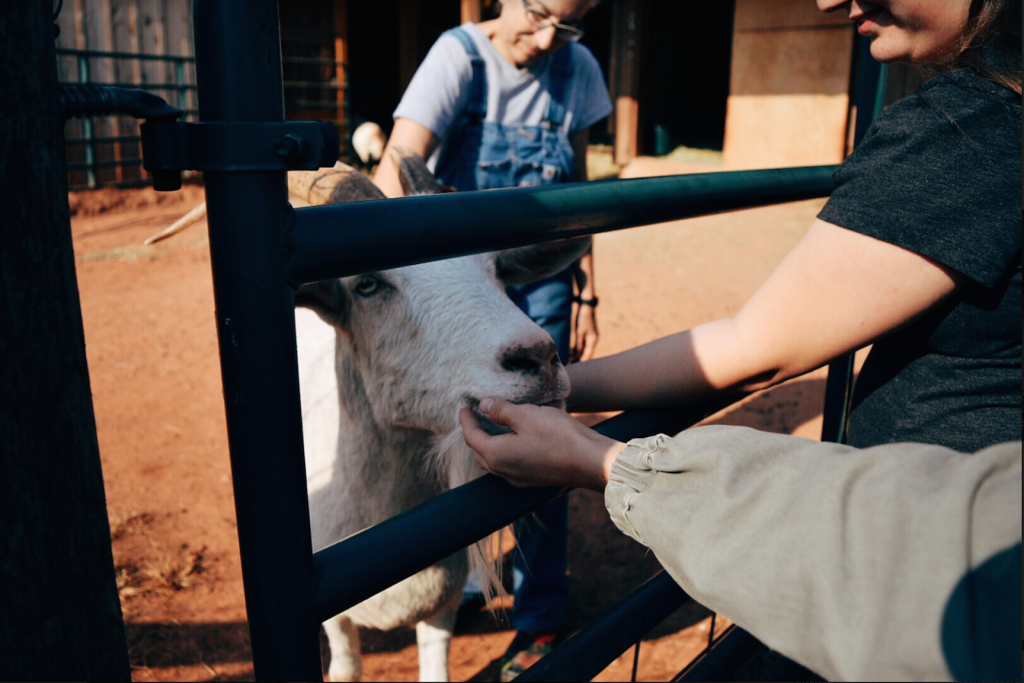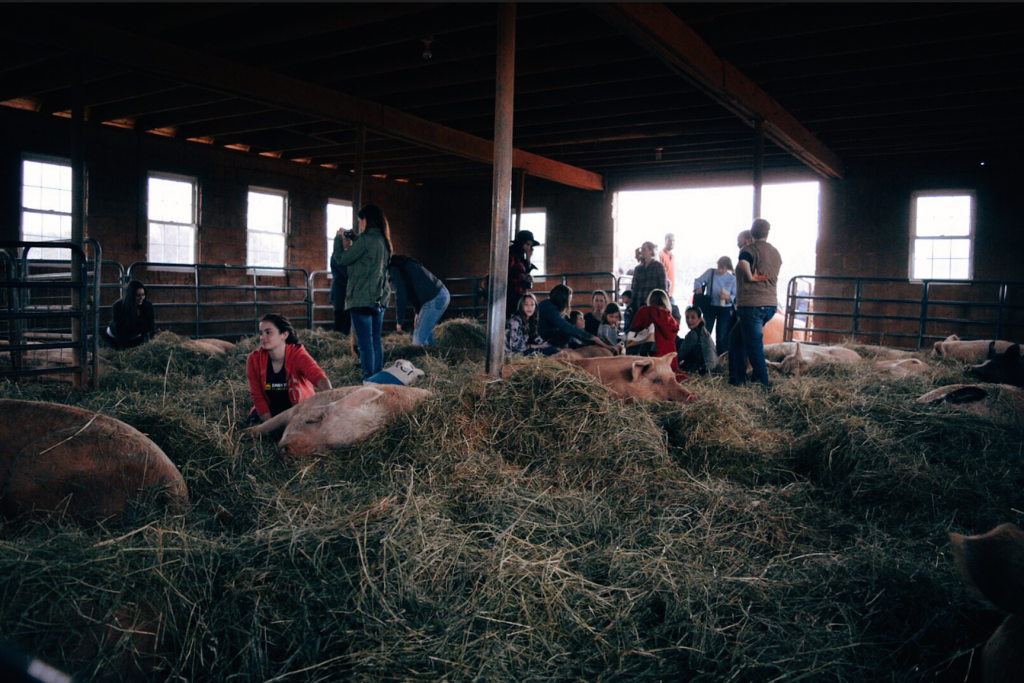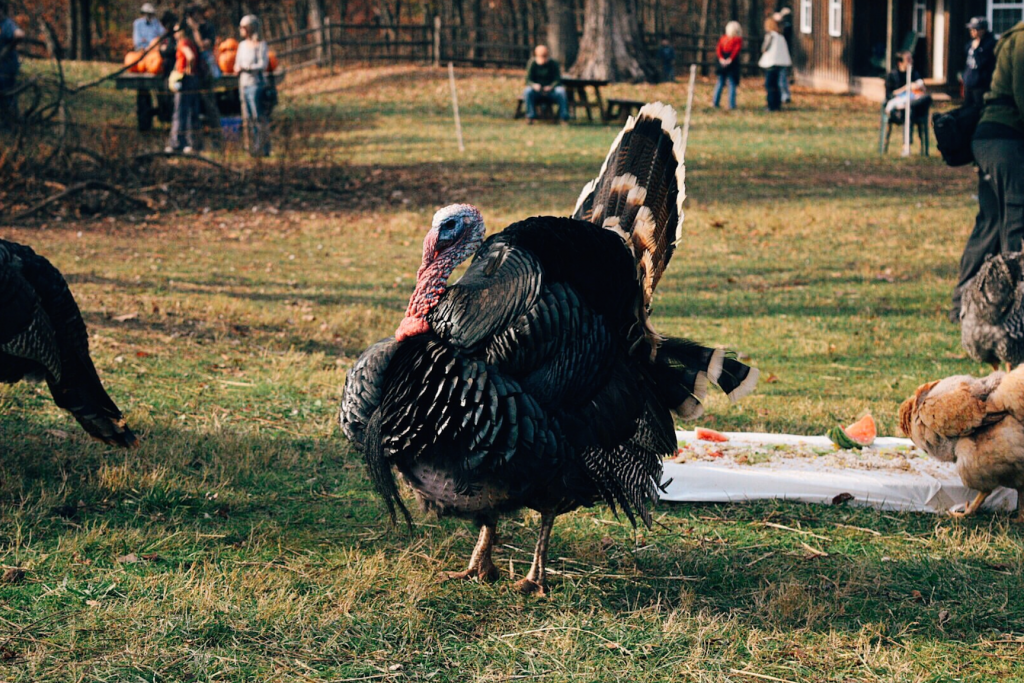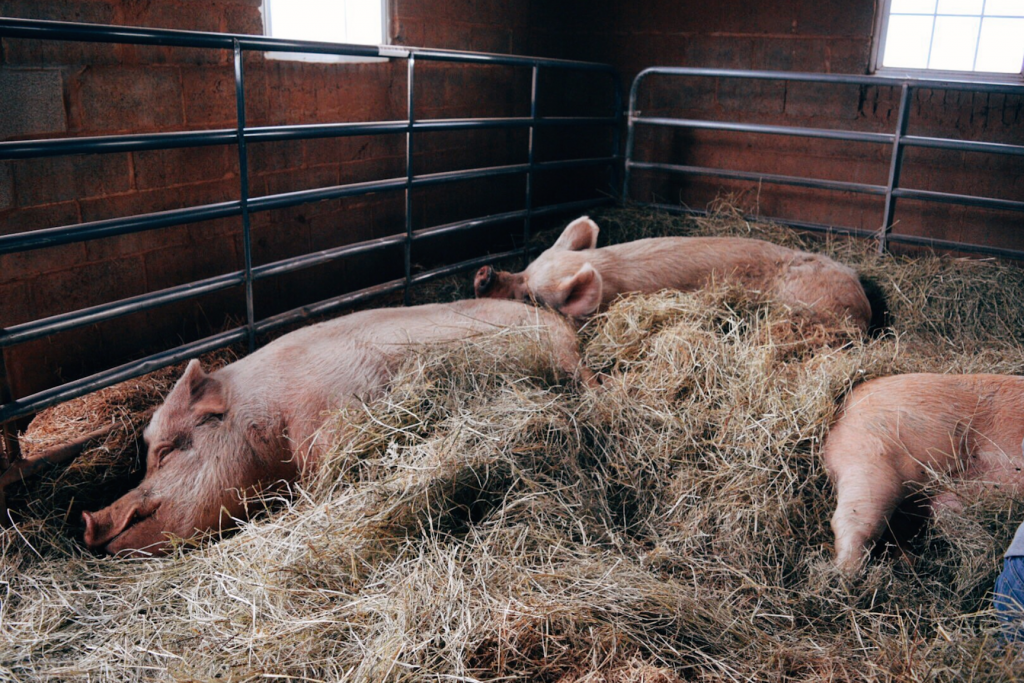By Sarah Thaw
Photos by Celeste Fuentes
Last year, 4.6 billion farm animals were slaughtered for human consumption. To facilitate this demand, animals are deprived of their right to a natural life and instead treated as commodities, going through a process of birth and death as fast and efficiently as possible. Like any other large-scale business, a factory is the method of choice, producing the most supply at the fastest, cheapest rate.
Over 99% of the farm animals in the United States spend their lives in factory farms. The corporations in charge of these farms seek to maximize profit by exploiting animals for their resources. The image of a happy cow roaming free in a pasture is utter bullshit (no pun intended); the conditions in these factories are absolutely brutal. The animals raised for food are denied anything that is natural to them and are instead crammed into confined, unsanitary spaces, fed antibiotics, and genetically manipulated to become larger or produce more “product” than their bodies would naturally allow. Once these animals have grown to be big enough, or their bodies depleted from energy in producing milk or eggs, they are relocated to slaughterhouses to be killed for meat in grossly inhumane ways.
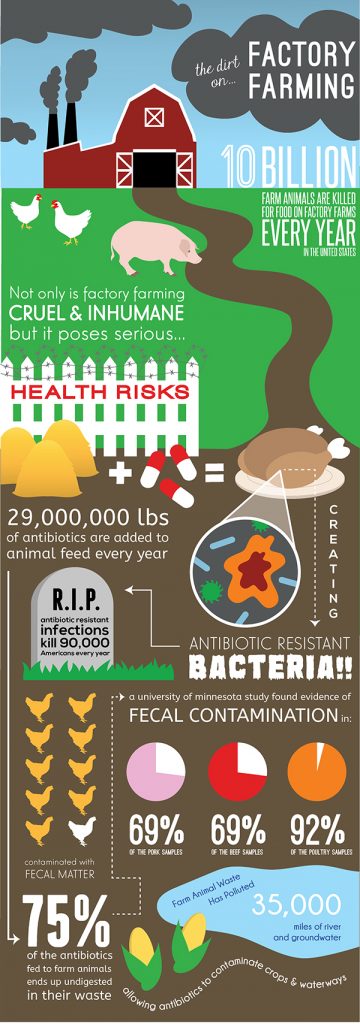
To learn more about factory farming and the detrimental effect it has not only on animal welfare, but also on the environment and human health, check out: https://www.farmsanctuary.org/learn/factory-farming/
Often times, people feel disconnect towards farm animals, desensitized to believe that these creatures are worth nothing more than the food they become. We distance ourselves from the notion that they are indeed complex, intelligent creatures that can feel pain, have a wide range of emotions and a yearning for life, just as any other living being. Research has even shown that pigs have the ability to outsmart dogs and chimpanzees on IQ tests! So why is it then that some animals are deemed deserving of our love and protection while others are condemned to a fate of confinement, torture, and relentless exploitation?
After spending time with these creatures, the preconceived ideas that differentiate them from a beloved pet quickly vanish. Farm sanctuaries offer the opportunity to interact with animals that would otherwise be considered food on a factory farm. There are many of these safe havens throughout the United States and internationally, each serving as a refuge for animals to live out their lives as naturally as possible without fear. Visitors are welcomed at these farms, in hope to spread a message of compassionate living and empathy towards other sentient beings.
Porchlight Animal Sanctuary, a non-profit organization in Richmond, is currently working towards opening one up in the area. According to their website, their mission is “Saving the lives of animals by providing sanctuary and inspiring compassionate action through education and outreach.” As for the animals they will be caring for, “Farmed animals require rescue from a number of tragic situations. The residents of our sanctuary could be survivors of overturned transport trucks, cruelty cases, farms that close due to financial difficulty, or backyard ‘farm’ surrenders. We will provide a loving home for these individuals who have managed to escape a system that only views them as commodities.” Their goal is to get the sanctuary up and running by 2019, but provide an education program by this upcoming summer to empower the community in making compassionate choices. To support their cause or learn more about the organization, visit: http://www.porchlightsanctuary.org/.
“We must fight against the spirit of unconscious cruelty with which we treat the animals. Animals suffer as much as we do. True humanity does not allow us to impose such sufferings on them. It is our duty to make the whole world recognize it. Until we extend our circle of compassion to all living things, humanity will not find peace.”
-Dr. Albert Schweitzer
—
Sources:
http://www.humanesociety.org/news/resources/research/stats_slaughter_totals.html?
http://www.aspca.org/animal-cruelty/farm-animal-welfare
http://www.peta.org/issues/animals-used-for-food/factory-farming/

